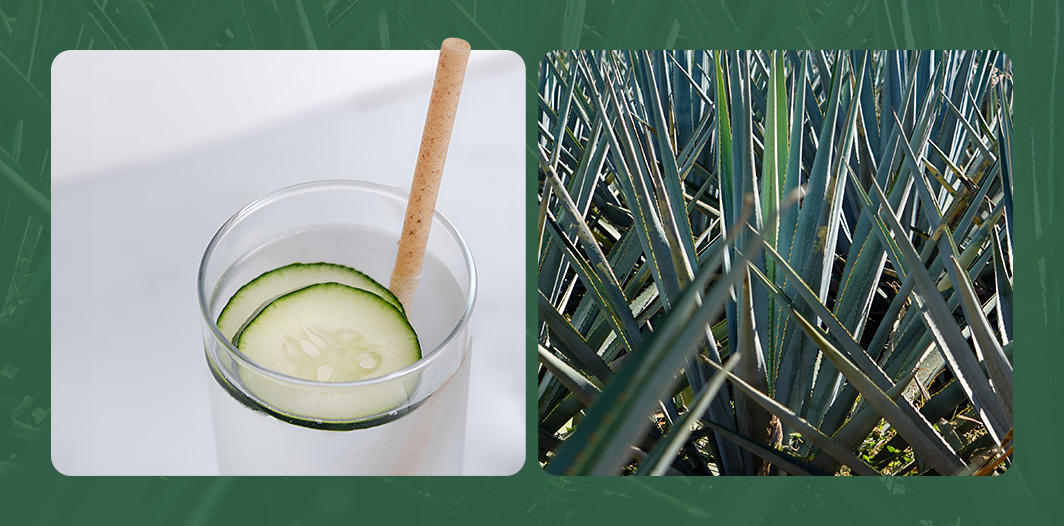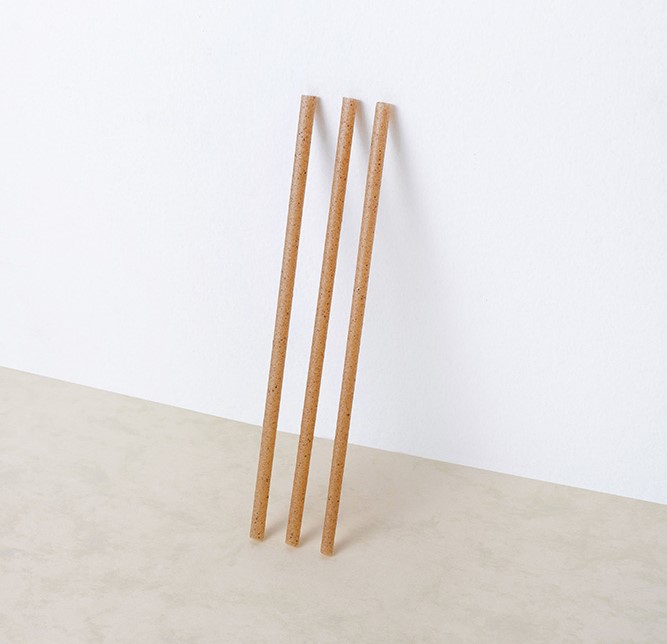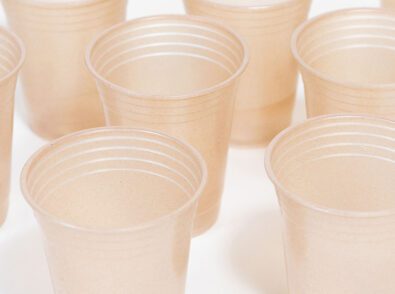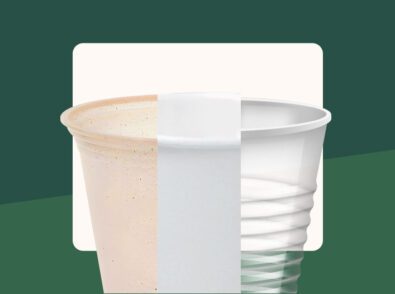Top 4 Biodegradable Straws Made From Plants

Straws are essential in the foodservice industry, whether you’re selling thick milkshakes, bubble tea, or specialty coffee with whipped cream. Plastic straws, however, are difficult to recycle and not biodegradable, posing a serious threat to the natural environment, wildlife, and humans.
Those in the foodservice industry can significantly reduce their carbon footprint by choosing biodegradable straws. If you want to switch from plastic to biodegradable straws, have a look at these top eco-friendly straw companies.
Why Are Plastic Straws Bad for the Environment?
While plastic production is skyrocketing, the United States only recycles about 6% of plastic. The rest overwhelms landfills, releases harmful toxins when burned in incinerators, or ends up in our oceans, rivers, and land. Plastic breaks down into smaller pieces over time, eventually becoming microplastics found in our water, food, and even our blood. Microplastics in the human body can cause serious harm—scientists have linked them to heart attacks, strokes, and premature deaths.
Straws contribute to the plastic problem, as these non-biodegradable items harm wildlife and increase microplastic pollution. To mitigate these problems, eco-friendly straw suppliers retail biodegradable straws so people can sip with ease, knowing they’re not contributing to the plastic crisis.
What Are Biodegradable Straws?
Biodegradable straws decompose naturally. Bacteria, fungi, and microbes break these straws down into smaller pieces, which are eventually reabsorbed into the environment without causing harm. Different straws will break down at different rates due to their manufacturing methods and the materials used to make them.
How to Choose the Best Eco-Friendly Straws
In the United States, the ASTM D6400 standard regulates biodegradability. If you want the best biodegradable straws on the market, opt for ones that have undergone decomposability tests and are certified. Also, ensure you know exactly how long it takes for a supplier’s straws to decompose. Lastly, consider the material a manufacturer uses. The most eco-friendly straws are made of organic waste, meaning manufacturers use by-products from other industries to manufacture sustainable straws.
Greenprint Agave Straws

Greenprint agave straws are made from FSC-certified waste fibers left behind by alcoholic beverage manufacturers. These manufacturers use the plant to produce tequila and mezcal. Utilizing this waste, straw suppliers like Greenprint offer sturdy, sustainable straws while helping reduce waste from alcohol manufacturers.
Greenprint offers biofading straws made from agave fibers and traceable recycled plastic. They are certified landfill-degradable and decompose in one to three years. We also offer straws that decompose in water. These PHA straws are made from canola and soy seeds. We retail our agave straws in bulk or smaller quantities, and you can purchase them wrapped or unwrapped.
Greenprint Biodegradable Straws Pros and Cons
Pros
- Resistant to sogginess
- Suitable for hot and cold drinks
- Various length and diameter options—including bubble tea sizes
- No per- and polyfluoroalkyl substances (PFAS) or Bisphenol A (BPA)
Cons
- Limited color options
EQUO Sugarcane Straws
EQUO retails sugarcane straws in various thicknesses. Founded in 2019, EQUO has become an international supplier of eco-friendly utensils, dishware, cups, and straws in 15 countries. Their clients include Haagen-Dazs, the World Wildlife Fund, and Bidfood.
EQUO sugarcane straws are made from sugarcane fibers known as bagasse, a by-product of sugarcane processing. They are brown, have a naturally speckled pattern, and are fragrance-free. Intertek, a leading quality assurance provider, has certified these straws—they contain no plastics or heavy metals.
EQUO Biodegradable Pros and Cons
Pros
- Holds up to both hot and cold beverages
- Resistant to sogginess
- Comes in various sizes, including cocktail straws and boba straws
Cons
- Have a rustic look that might only work with certain brand images
Phade PHA Straws
Polyhydroxyalkanoate (PHA) is a thermoplastic made from plant-based materials such as cornstarch, canola soy seeds, and sugarcane. Phade uses fermented canola oil to manufacture environmentally friendly PHA straws that look and feel like plastic straws and perform like them, too. Their straws are gluten-free and come in various sizes and designs, including flexible types. You can purchase these straws in various quantities, and the company also offers individually wrapped straws for food and consumer safety.
Phade PHA Straws Pros and Cons
Pros
- Look and perform similarly to plastic straws
- Commercial or home compostable and marine-degradable
Cons
- Phade only offers blue straws that may not complement your brand image
- PHA straws are usually more expensive than their other eco-friendly counterparts
Earth Smart Wood Pulp Straws
Earth Smart offers sustainable products for the foodservice industry. Earth Smart biobased straws are made of wood pulp and vinegar. They are 100% biodegradable in freshwater and soil. These straws are gluten-free and contain no PFAS or heavy metals.
Earth Smart Wood Pulp Straws Pros and Cons
Pros
- Offers the same clarity as plastic
- Suitable for hot and cold drinks
- Customizable color options
Cons
- They only provide jumbo and giant-size straws
Sip Sustainably With Greenprint
You can confidently trust Greenprint for sustainable, eco-friendly straws. Browse our agave straws now, or contact our team online to learn more about our products.
References
- https://static1.squarespace.com/static/5eda91260bbb7e7a4bf528d8/t/62b2238152acae761414d698/1655841666913/The-Real-Truth-about-the-US-Plastic-Recycling-Rate-2021-Facts-and-Figures-_5-4-22.pdf
- https://www.scientificamerican.com/article/microplastics-linked-to-heart-attack-stroke-and-death/
- https://us.fsc.org/en-us/certification
- https://shopequo.com/products/sugarcane-straws
- https://www.phadeproducts.com/straws/
- https://www.earthsmartpackaging.com/products/bio-based-straws/



